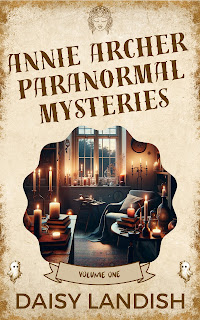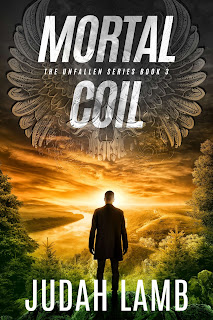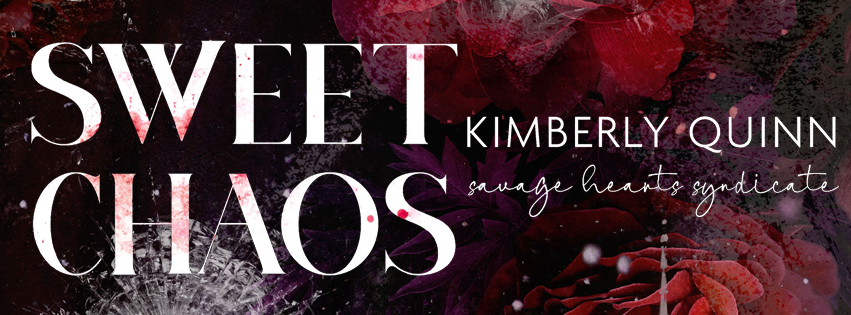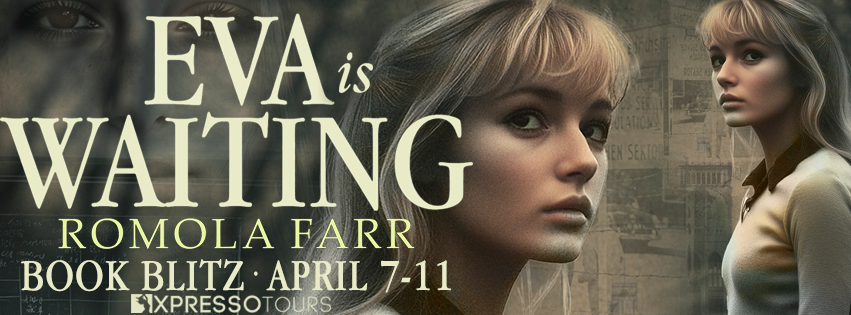Hello and welcome to the The Curse Merchant by J.P. Sloan Blog Tour presented by FMB Author Promotions. Please join me in welcoming J.P. Sloan to The Avid Reader today. Thanks for stopping by J.P. Please be sure and check out J.P.'s Novel The Curse Merchant book #1 in the The Dark Choir Series. J.P. is here today to give us his take on how he outlines a novel before he starts writing.
Title: The Curse Merchant
Series: The Dark Choir #1
Author: J.P. Sloan
Genre: Urban Fantasy Noir
Publisher: Self-published
Format: Ebook
Words: 83,000
PURCHASE
The Curse Merchant
BOOK DESCRIPTION
The Curse Merchant
Dorian Lake has spent years cornering the Baltimore hex-crafting market, using his skills at the hermetic arts to exact karmic justice for those whom the system has failed. He keeps his magic clean and free of soul-corrupting Netherwork, thus avoiding both the karmic blow-back of his practice and the notice of the Presidium, a powerful cabal of practitioners that polices the esoteric arts in America. However, when an unscrupulous Netherworker interferes with both his business and his personal life, Dorian's disarming charisma and hermetic savvy may not be enough to keep his soul out of jeopardy.
His rival, a soul monger named Neil Osterhaus, wouldn't be such a problem were it not for Carmen, Dorian's captivating ex-lover. After two years' absence Carmen arrives at Dorian's doorstep with a problem: she sold her soul to Osterhaus, and has only two weeks to buy it back. Hoping to win back Carmen's affections, Dorian must find a replacement soul without tainting his own. As Dorian descends into the shadows of Baltimore's underworld, he must decide how low he is willing to stoop in order to save Carmen from eternal damnation... with the Presidium watching, waiting for him to cross the line.
EXCERPT
The Curse Merchant
I brought my finds to a table near the microfiche reader and opened up my spiral notebook. None of the books were meant to leave the building, and photocopying was forbidden, so I had to take my notes and glean all I could. At least I was alone.
Or thought I was.
I had finished the chapter on the life of Simon Magus, a Samaritan during the first generation of Christian evangelists who had locked horns with Saint Peter himself, when a shadow fell over my notebook.
"Curious reading, Mister Lake," a velvety Arabic voice spilled over my shoulder.
I looked up to find the Syrian smiling at me.
I set my notebook casually on top of the Jesuit text as he leaned on the microfiche reader.
"Good morning," I grumbled.
The Syrian leaned over and picked up my book with a pausing gesture that at the same time asked for permission and left no room for refusal.
"Simon of Gitta," he recited. "A widely misunderstood individual, in my opinion."
"Misunderstood in the days of the early Church usually meant brutal death by torture, so there's that."
"Colorful stories aside, any serious student of soul magics would do well to study the life of Simon." He set the book down and narrowed his eyes. "Are you?"
"Am I what?"
"A student of soul magics?"
"Oh, no. That's not my particular bag of tricks." I elbowed the Jesuit text further behind me. "I just saw a show on cable last night, and wanted to do some more reading. That ever happen to you?"
"I rarely watch television, Mister Lake. Abominable contraptions."
"Well, all right then."
He lingered beside me, staring down into my eyes. I shifted in my seat, trying not to look horribly guilty of something I had no intention of doing.
"How long have you been a member of the Occidental Lodge?" he asked, finally breaking the tension.
"Oh, roughly a half hour, now."
He shook his head in confusion.
I jammed my thumb over my shoulder.
"New policy. Some crap about a restricted section and Lodge members. I just ponied up to get to the good stuff."
He nodded with a warm grin.
"That makes sense. You did not strike me as the ceremonialist type."
"Know many ceremonialists, then?" I ventured.
His eyes lifted at the corners.
"You are aware, Mister Lake, that the practice of Netherwork is not kindly viewed by certain elements within the American magical establishment?"
I watched his face for a quick moment, trying to figure out if he was threatening me, or if he was genuinely asking me a question.
"Anyone with a brain knows that," I whispered.
"The question then becomes, are you a risk-taker?"
"I'm really more of a sure thing kind of guy."
He smiled and tapped on top of my notebook, making my stomach flip.
"Forgive my intrusion. Enjoy your studies."
He stepped away, grabbing a book from the top of a nearby table and settling down in a chair almost directly behind me. I looked over my shoulder a couple times, trying not to look nervous. The Syrian was studiously not watching me, which only added to my anxiety.
GUEST BLOG
Flesh to Bone,
My Take on Outlining a Novel
J.P. Sloan
I am a self-avowed "plotter," meaning I prefer to fully construct the skeleton of novel before I type the first sentence. This process of pre-writing is my actually my favorite part of the overall novel writing process. My pre-writing phase takes roughly one-third the amount of time as the actual drafting phase, and includes plot outlining, scene development, and character worksheets. By the time I craft my opening line, I know how the story is going to end… which is kind of the point.
The very first portion of pre-writing is something I like to call "incubation." I get an idea for a story, and I let it cook in my noodle for a while. I tend to talk out loud to myself, play-acting individual scenes to get the sense of how the story would speak to a reader. For me, novels are inherently audible works, meant to sound as natural out loud as a stage play. Once I feel satisfied that the idea is sound and interesting, I move on to plot outlining.
I've developed a kind of plot skeleton loosely based on Joseph Campbell's Monomyth structure, with minor tweaks to suit my particular proclivities. It's a three-act structure, with the first act consisting of a Boom!, a Status Quo, a Prod and a Plunge. Here I capture the reader , establish the world and its rules, then nudge and thrust the protagonist into the plot. Act Two consists of a Threshold, a series of Trials, and a Black Moment. This represents the steady rise of action toward the final act, wherein the protagonist tries, fails, and tries again… often complicating the situation in the process until he reaches a moment of despair or seeming failure. The final act consists of the Climax and the New Reality. The ultimate conflict of the story is resolved between the protagonist and antagonist, and I walk the characters into the new world they have created. This plot outline is one page long, with each entry only one sentence in length. It's meant to be, to labor the metaphor, bare bones.
Having captured the essence of the plot, I move on to a more in-depth exploration of the story by way of a multi-page spreadsheet. I take each line entry in the plot skeleton and break it into individual scenes. Each scene has a worksheet in which I establish the time and location, the major players, and most importantly how each scene contributes to the overall story. Also, each scene should have its own rising action, complete with tactics the players employ to achieve their immediate goals.
Once this scene spreadsheet is filled, usually upwards of fifty pages long, the story is realized. From here I develop the characters, who are the real engines of the plot. I begin with the protagonist and antagonist, and run them through a worksheet that requires tremendous needless detail as to their appearance, their personal philosophies and biases, and even their major relationships… whether it enters into the story or not. If any character appears as a "Major Relationship" in the character worksheet, I consider giving that character his or her own worksheet. I typically fill out four to six worksheets for the major characters and their reflections before I'm done.
Finally, it's time to begin drafting, and pre-writing is concluded. The plot outline serving as the skeleton, I have plenty of meat on-hand to hang on those bones. That said, I do not treat these worksheets and outlines as Gospel. Often a character will wander from the outline, and I tend to let him. Perhaps half the time, this produces a change that merits going back and adjusting the outline. The other half of the time, however, it's just a dead end.
I don't espouse my method as the One True Way for long format fiction. It simply suits me, as I'm typically lost without a map. But I do feel it behooves a writer to have a sense of what the real core conflicts are, and how to keep the forward motion moving, well… forward.
ABOUT THE AUTHOR
I am a storyteller, eager to transport the reader to strange yet familiar worlds. My writing is dark, fantastical, at times stretching the limits of the human experience, and other times hinting at the monsters lurking under your bed. I write science fiction, urban fantasy, horror, and several shades in between.
I am a husband and a father, living in the "wine country" of central Maryland. I'm surrounded by grapevines and cows. During the day I commute to Baltimore, and somehow manage to escape each afternoon with only minor scrapes and bruises. I am also a homebrewer and a certified beer judge. My avocations dovetail nicely!
- ONLINE LINKS
This tour was put together by FMB Author Promotions




















































































2 comments:
Thanks for hosting my article today!
Your welcome. Thank you for visiting with us today and letting us in on your writing process.
Post a Comment